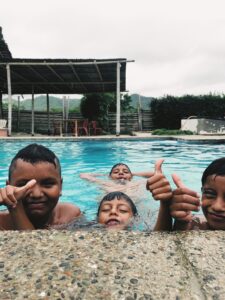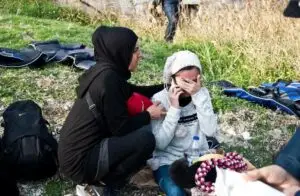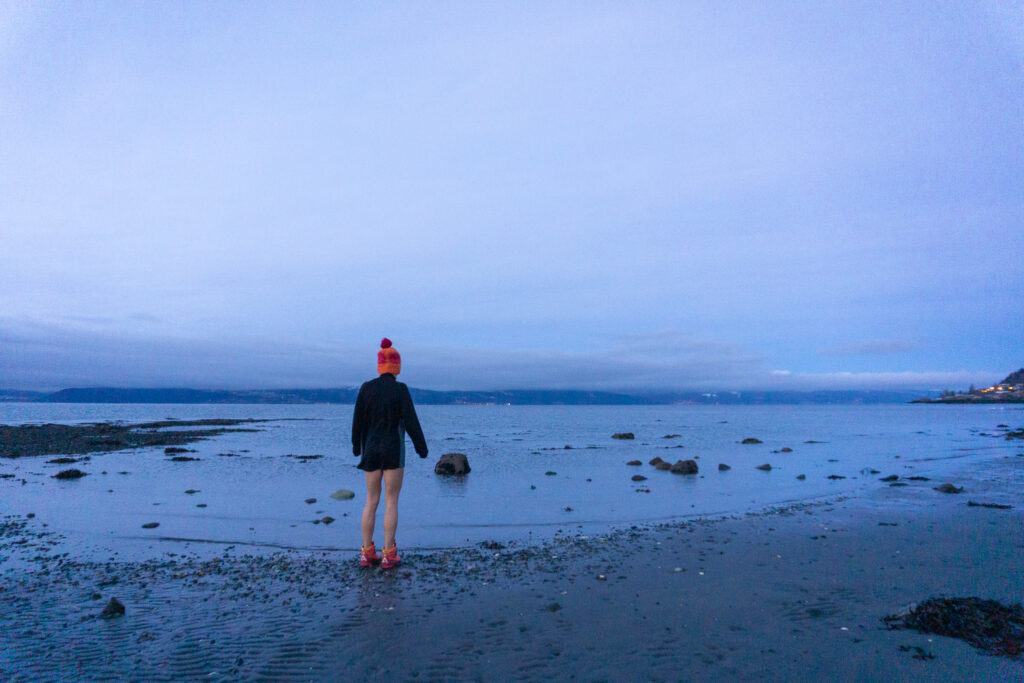Going beyond your comfort zone
Exposing oneself to discomfort, pushing the boundaries, going beyond the comfort zone are all expressions of showing courage, of being brave. But what is courage, what does it mean to be brave?
It is true what is said that courage is to expect discomfort in exchange for a great personal benefit. Things you do that you thought you could not do and that you may not have thought you would have the courage to do, can change your life.
There are many life examples of this. Most famous right now is the President of Ukraine. Zelensky shows great courage by being where he is and doing what he does. (Along with everyone else living and fighting in Ukraine, of course)
Courage can also be to do things that we have dreamed of doing for many years and postponed for just as long.
But what is courage?
Courage is a fundamental skill, and can be divided into physical courage, moral courage and psychological courage
Being brave is considered a good virtue. In reality, most of what we allow ourselves to be entertained by in the world of fiction represents some form of courageous behavior.
Heroism, where people save others at the risk of their own lives, courage in relation to love, courage by coming forward with qualities that can create conflicts, but which at the end of the film / book / play trumps everything and the risk the hero took becomes a gain that follows him/her for the rest of his/her life.
But courage is not only cultivated in fiction. In reality, we hear every day about people who go “beyond and above”. Heroes in war, heroes in everyday life, heroes in hospitals, heroes in the emergency services.
In general, heroes who expose themselves to the danger of saving others. But not just heroes who save other people. It can just as well be people who do things for animals, nature, a cause, an organization, etc.
When did it start?
We’ve had heroes for thousands of years. Even the first literary works that have been handed down to modern times – the Gilgamesh epic, the Iliad and the Odyssey, are mainly about exceptionally brave people who perform exceptionally brave actions.
We like to listen to stories about heroic people. Maybe this is because we dream of being such a person ourselves.
In these times, which are special to all of us, perhaps we should stop to reflect on what the word courage or bravery means. Showing courage, being brave is one of the most important prerequisites for living a good life.
But courage can be so much.
Is courage, "courage" or is it something else?
What one defines as courage or bravery depends entirely on who you ask and in what culture you are. This can be demonstrated with a simple question: Who is the bravest of a base jumper and a climate activist? Or an elite skier and a coach for a boys’ basketball team?
The answer depends on who you ask, and what the person puts in the term “courage”. Some would argue that courage is first and foremost about exposing the body to physical risk. These people will typically argue that the base jumper risks dying, while the climate activist stands safely behind the podium without risking any worldly things.
Or that the elite skier is the hero by winning major championships and has done so by exercising for years. While others believe that the coach who sacrifices free time and energy to train little boys (and girls) in skiing is the big hero.
Dividing this into different levels can help.
- Physical risk,
- mental risk
- moral risk:
Physical courage is a willingness to expose oneself to situations that may threaten the physical integrity of the body. Extreme athletes, war correspondents and military personnel are occupational groups that have to show great physical courage in everyday life.
Moral courage is a willingness to take personal risks to protect or promote important values. Martin Luther King Jr. and Malala Yousafzai are two people who have undeniably shown great moral courage in their work to promote human and civil rights. But also people who risk their good name and reputation by fronting difficult cases on the risk og stigmatination is brave. Aren’t they?
Psychological courage is a willingness to challenge one’s personal limitations despite emotional discomfort. Psychological courage is largely about confronting one’s inner demons in order to develop as a person.
In the example above, a disagreement arises because the first perspective (the base jumper is the bravest) favors physical courage, while the second perspective (the climate activist is the bravest) favors moral courage.
It is difficult to say that one perspective is right and the other is wrong, both the base jumper and the climate activist are brave in their own way. The elite runner’s courage is physical, while the toddler coach’s courage is moral..ish. (Or maybe mental, who knows? It can be hard to train young boys and girls;)
Is it possible to be too brave?
Debates about what it means to be brave are far from a new-fashioned phenomenon. As early as 2300 years ago, the Greek philosopher Aristotle wrote an in-depth treatise on the nature of fashion in Nicomachean ethics.
The Greek philosopher claimed that true courage is a balancing act between fear and self-confidence: If we have too much self-confidence, we risk becoming impulsive and foolhardy, but if we let fear dominate, we are in danger of becoming passive and cowardly.
Aristotle’s theory is known as the golden mean, and emphasizes that man must find the balance between too much and too little if we want to hit the right note. This theory is as relevant today as it was 2300 years ago. Therefore, it is still problematic to regard courage as an unconditional good. This position is quickly clarified by observing the behavior of people suffering from fearlessness, a condition also known as hypophobia.
How about the situation where the basjumpr risk, not only his /her own life but also the rescuers. How brave is that. Morally, mentally, physically?
Being without fear
A patient, referred to in the research literature as S.M., is virtually immune to fear and anxiety due to a bilateral damage to the amygdala (the brain structure most heavily involved in the processing of fear).
S.M. has been robbed several times and has been threatened with both a knife and a gun. She was close to being beaten to death by a former lover, and has been exposed to an unusual number of accidents and incidents. S.M. is thus a living example of how important our fear system is to function well in everyday life.
Of course, there are also more everyday cases of arrogance, or “hubris” as Aristotle would call it. People who score high on the personality trait “thrill seeking” tend to fall into this category.
People looking for excitement have a great need for new and intense experiences. They also show an increased willingness to accept physical, social, legal and financial risks in order to achieve such experiences. This appetite for adrenaline can become problematic if one does not manage to regulate the need in a socially acceptable way.
Fear is a prerequisite for courage
People suffering from severe anxiety disorders are the exact opposite of hypophobics and thrill seekers. These people often have an eager amygdala that exposes them to large amounts of fear.
Aristotle had categorized these people as cowards. The Greek philosopher believed that a brave person is a man who “fears the right things for the right reason, in the right way and at the right time.”
This view stands in contrast to a psychological understanding of courage. In psychology, it is common to regard fear as a prerequisite for brave actions: A parachutist will not be considered brave, if he/she thinks it is fun to jump from a plane.
The same person, on the other hand, would be considered very brave if she chose to defy her shyness in order to give a lecture on the excellence of skydiving in front of a large audience.
To be brave, at least from a psychological point of view, is about defying one’s own fear because one knows that the fear is irrational, inappropriate or inhibiting for life to unfold. Such a definition means that a courageous action must meet at least two criteria:
The actions must involve an inner discomfort.
We choose to expose ourselves to this discomfort in the hope of achieving something of greater value.
By such a definition, the people who fight a daily battle against their anxiety – the people that Aristotle would categorize as cowards – are actually among the bravest of us all.
Nelson Mandela said it best in his autobiography The Road to Freedom:
“I learned that courage was not the same as the absence of fear, but the victory of courage over fear.”
This is the very essence of a psychological understanding of courage.
To be in life is to be vulnerable, and that will never change
Everyday meeting
Traditionally, the term “courage” has been reserved for spectacular actions and extraordinary circumstances – people like Rosa Parks, Mahatma Gandhi and Volodymyr Zelenskyj appear in their heads.
Within psychology, one is more concerned with the small but courageous actions that characterize our everyday lives; for example, the broken-down single dad who goes on his first date after the divorce, or the disadvantaged employee who finally decides to change pastures.
According to the American psychologist Rollo May, the will to dare the journey itself in our personality: In the book Courage to create, the American psychologist writes the following:
Courage is not a virtue or a value among our personal qualities, as love and fidelity are. Courage is the very foundation that underlies all other virtues and values and makes them real. Without courage, love fades and becomes addictive. Without courage, our faithfulness becomes conformism.
Courage is thus a fundamental skill that must be actively cultivated if we want to actualize our full potential as human beings. If, on the other hand, we ignore the soul’s daily need for courage, we risk becoming an anemic version of ourselves.
Make no mistake- you are brave, whatever you do or don't do
My personal position regarding courage is that we all in a given situation will surprise ourselves with how brave we are. Of course it depends on the situation, but believe me – we all have it in us. I have seen countless examples of this among my fellow soldiers in situations where I thought I was going to die or at least never get away unharmed. My fellow soldiers showed strength, courage and action.
Beyond and above.
Within personality psychology, there are some researchers who refer to courage as a hidden personality trait. This means that you can not know if you are brave or not until you are placed in a situation that requires courage.
Such thinking can be limiting because it indicates that courage is a quality that one either has or does not have. This is not the case: Everyone can be brave, and everyone can train to be more brave.
This becomes clearer when we adopt a psychological understanding of courage, ie that courageous actions involve overcoming one’s own fear of achieving something of value.
Such a definition means that it is difficult to determine whether an action is courageous or not based on objective criteria: An action that involves great courage for one human being does not necessarily mean great courage for another human being.
Courage is about moving outside your personal comfort zone and moving the boundaries of what you thought was possible. This is an indispensable skill if we want to be the best version of ourselves.
And by the way:
The root of the word courage is cor – the Latin word for heart. (In Spanish corrazon)
In one of its earliest forms, the word courage had a very different definition than it does today. Courage originally meant
“To speak one’s mind by telling all one’s heart.”
Sources
The idea and excerpts of this text is from the Norwegian article by Eirik Hørthe, psykologisk.no

What is a lifetime, really?
Twenty good years? A good friend of mine once said while walking in the mountains of Gran Canaria.“Knut, we have twenty good years left. Use

How to protect yourself from your PTSD, when the world is on fire
(It is war. And it is mine. ) The headlines that meet me today are about the war in Ukraine. Alarms going off, people fleeing,

The thin film of civilization
The thin film of civilization This picture are taken on Lesvos. Her husband and baby drowned on the way over from Turkey. This is a
